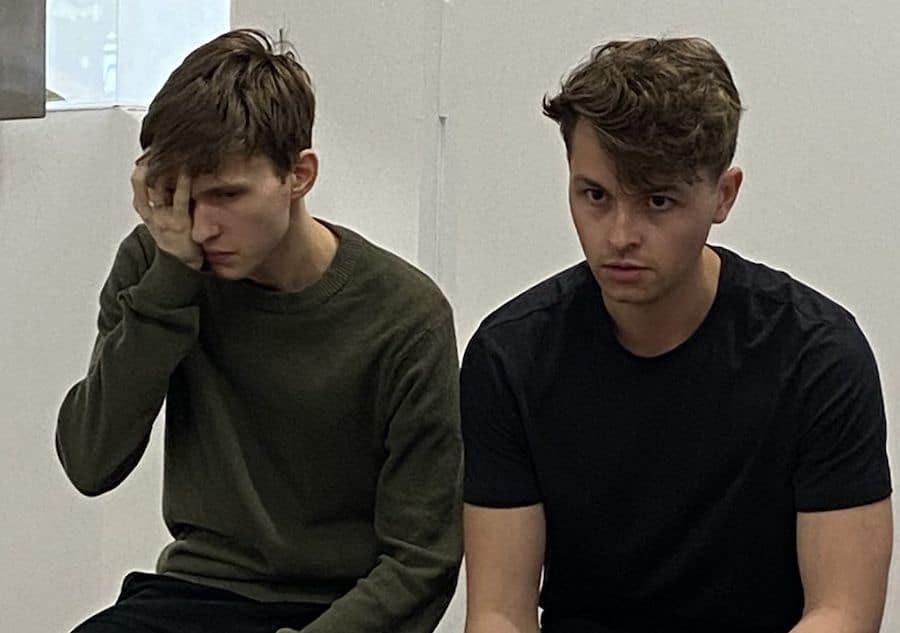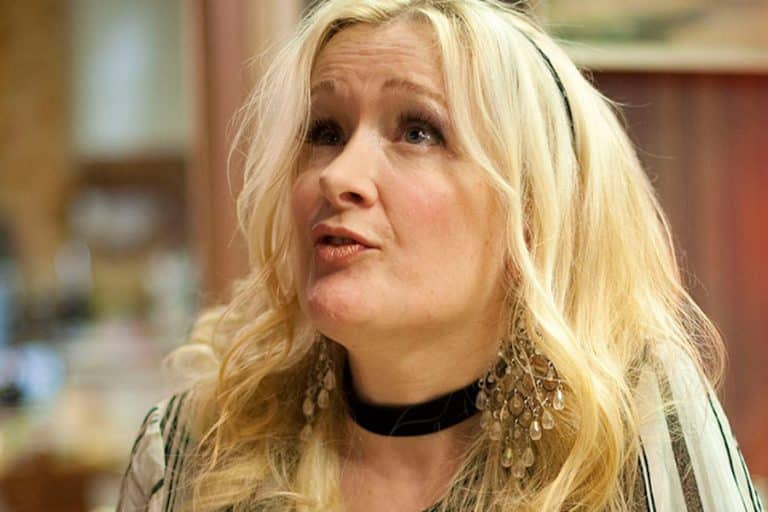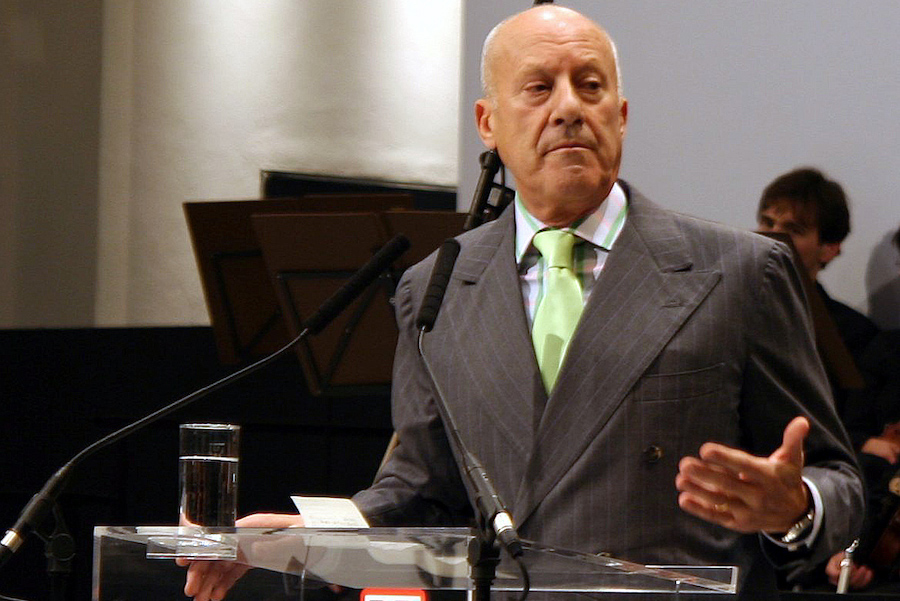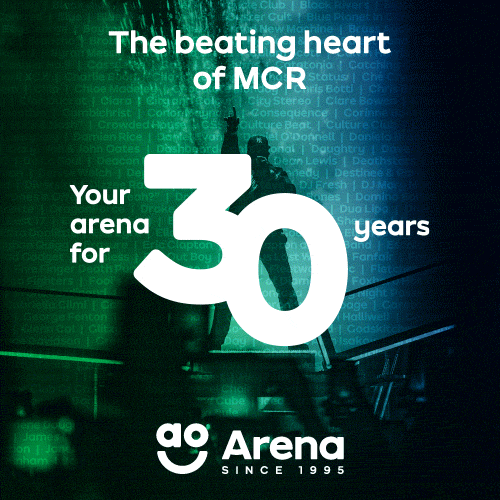Review: boyOGRAPHY at Social Refuge is ‘an in-depth exploration of identity and relationships’
- Written by Connor Cooper
- Last updated 8 months ago
- City of Manchester, Theatre

Written and directed by Nick Maynard boyOGRAPHY follows two boys Olly and Jake as they “f**k and fall in love”.
After crossing paths at school, they find themselves inexplicably and repeatedly drawn together for years, despite both being straight.
boyOGRAPHY at Social Refuge
Right from the start boyOGRAPHY makes it clear that its primary aim is to shock the supposed mild sensibilities of the audience but arguably, it would be much more revolutionary for Olly and Jake to be openly gay and in a relationship.
The idea that two seemingly straight teenage boys are attracted to each other is not really as shocking or far-fetched today as it may have been two decades ago, for example.
This is not to say that homophobia no longer exists, or that every gay story needs to be a sanitised, coming-out narrative but rather that boyOGRAPHY sometimes misses the point with its messaging.
For instance, while there are many explicit sexual scenes, I’m not sure many people will be left clutching their pearls and “running back to the 1950’s” as the pre-show narration smugly states.
Exploring identity
Identity is one of the key themes explored within the play and although this is a worthy discussion, I’m not sure how successful it was here.
While I appreciate and agree that some people labelling their identity is more of a hindrance than a help, I think boyOGRAPHY could have really delved into why Olly and Jake feel such an aversion to identifying as anything other than straight.
This could have been an interesting way to analyse and dissect the impact of toxic masculinity on the characters and provoke conversations for the audience as well.
A small but powerful cast
There are only ever two characters on stage, so boyOGRAPHY hinges almost entirely on their relationship. Isaac Radmore (Olly) and George Bellamy (Jake) give strong performances and manage to create two individual characters, despite the audience not knowing much about either of them or their lives outside of each other.
Encompassing years of a relationship using vignettes is unique and interesting. It helps maintain the pace needed for a 60-minute run time and creates a sense of recollection within the story.
However, it sometimes leaves a little to be desired.
Oftentimes, the audience is told about an allegedly crucial event that happened off-stage, rather than living it with the characters.
Because of this, it feels as though we are getting the abridged version of an unfamiliar story.
As a playwright, Nick Maynard uses visceral and poetic language to establish his distinct voice. This is definitely one of boyOGRAPHY’s greatest strengths.
The dialogue is lightning-fast and wicked sharp, which really builds on the rapport between Olly and Jake.
However, because his voice is so unique, it is very easy to spot within the play.
At certain points, it feels very much like Maynard is using the characters to preach to the audience.
The use of sound and projections within the play was interesting and effective. It helps to keep the audience engaged and builds a world for Olly and Jake to exist within.
Tickets for boyOGRAPHY at Social Refuge
A lot of the time, it feels like boyOGRAPHY is refuting the very point it tries so hard to prove: toxic masculinity and homophobia- both internal and external- clearly still exist because these two characters are so governed by them.
While this play starts many meaningful and important conversations, it ultimately fails to treat them with the attentiveness and nuance they deserve.
boyOGRAPHY is at Social Refuge on 26th July as part of the Manchester Fringe Festival, tickets are available here
- This article was last updated 8 months ago.
- It was first published on 4 July 2024 and is subject to be updated from time to time. Please refresh or return to see the latest version.
Did we miss something? Let us know: [email protected]
Want to be the first to receive all the latest news stories, what’s on and events from the heart of Manchester? Sign up here.
Manchester is a successful city, but many people suffer. I Love Manchester helps raise awareness and funds to help improve the lives and prospects of people across Greater Manchester – and we can’t do it without your help. So please support us with what you can so we can continue to spread the love. Thank you in advance!
An email you’ll love. Subscribe to our newsletter to get the latest news stories delivered direct to your inbox.
Got a story worth sharing?
What’s the story? We are all ears when it comes to positive news and inspiring stories. You can send story ideas to [email protected]
While we can’t guarantee to publish everything, we will always consider any enquiry or idea that promotes:
- Independent new openings
- Human interest
- Not-for-profit organisations
- Community Interest Companies (CiCs) and projects
- Charities and charitable initiatives
- Affordability and offers saving people over 20%
For anything else, don’t hesitate to get in touch with us about advertorials (from £350+VAT) and advertising opportunities: [email protected]

Paw-sitively amazing Mo marks ten years of doggy devotion at Dogs Trust Manchester

Levenshulme Market returns – but will it retain its former magic?

Almost Famous brings back its most legendary burger – for one month only


The world-renowned Mancunian architect behind Old Trafford’s future
















